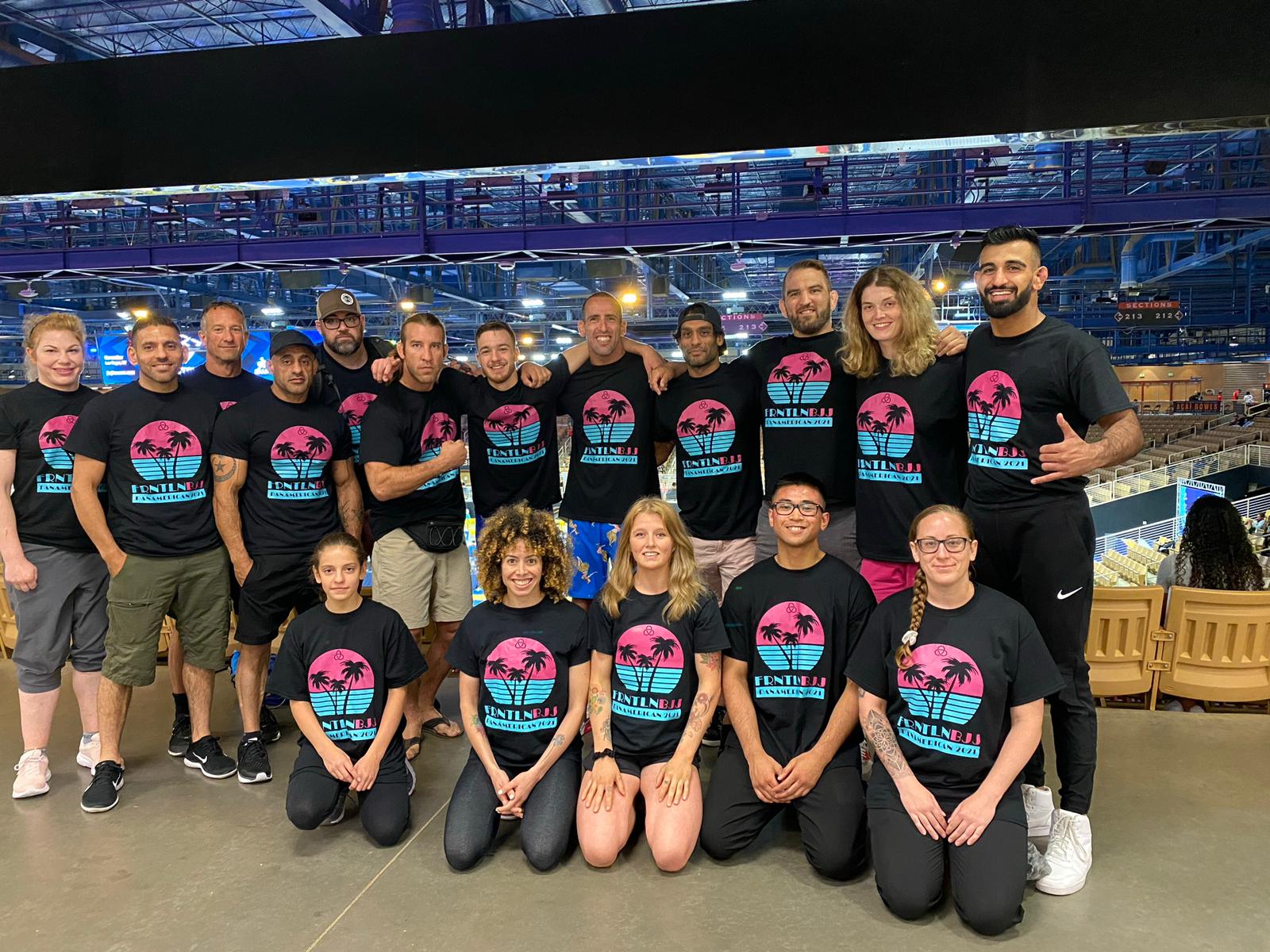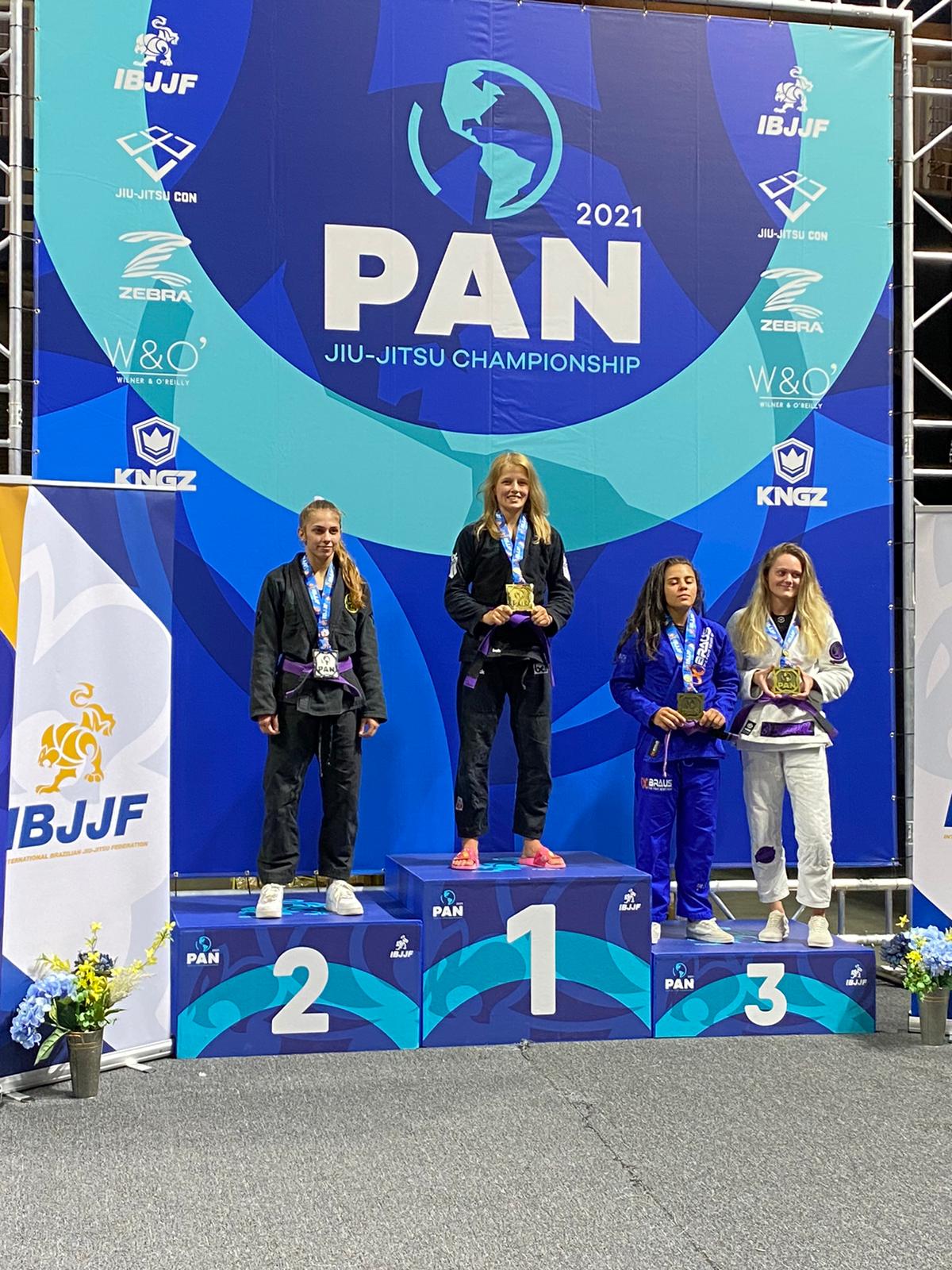
Pedro Lott and his team during an IBJJF competition in USA. Photo: personal archive
Team Carlson Gracie is assembling, again, a strong competition squad for Jiu-Jitsu tournaments around the world. Currently a resident of Canada, Pedro Lott is a strong arm in this restructuring, and has as his mission, alongside Master Carlson Gracie Jr, the task of providing his athletes with opportunities to train at a high level, travel and compete in the main IBJJF tournaments and, above all, to have a career plan.
Pedro, a black-belt since 2008, spoke of how the roots of team Carlson Gracie — one of the biggest competitive forces of the aughts — remain strong, and how they plan not just to make good athletes, but for them to have solid careers in the sport.
“Master Carlson Gracie Jr. has been restructuring the team in such a way that all of today’s athletes will tomorrow have a future on the team, because competition is a short stage in the life of an athlete,” he said. “Today we’re champions, but tomorrow we have to pay bills, support families, and that’s what’s most important. The preoccupation of our master with these athletes is for them to be able, tomorrow, to live off the sport with dignity.”
The team’s most recent competition was the Brazilian Jiu-Jitsu Confederation’s (CBJJ) Brazilian Nationals, where it was represented by 126 athletes ranging from blue-belts to black-belts, including Guthierry Barbosa, Matheus Nascimento, Alexandre Molinaro — the team’s black-belts.
“From blue belt to black, we have lots of athletes,” said Pedro. “The names mentioned above, as well as Rerrison Gabriel, Cleison Santos, Yago Oliveira, Filipe Assis, Wesley Teixeira, Maria Raniele, Luiz Eduardo, are some of our athletes in the colored belts. They’ve been making some noise in the recent tournaments. They are students under Profs. Juan Lopes and Douglas Rufino, who are teachers with our team Carlson Gracie. We have other names that are greatly standing out, and you’ll know about them soon.”
Pedro, who leads his own gym on Canada’s West Coast, went on to talk about the challenges the pandemic brought — but also, on a better note, about the strides the sport has been making around those parts.
“BJJ on the West Coast of Canada was evolving at a pretty fast pace in the last seven years, but with this pandemic and the regulations by the Canadian government, things greatly slowed down around here,” he said. “In the last 19 months, our gym was closed for 12 months in total, opening and closing within the period. But the community will go back to growing again, and it has all my support to do so.”
He added: “At our gym, in Canada, we have many students who have been standing out in the masters; we have many IBJJF world champions. There’s a 23-year-old black-belt who won the Orlando Open in his first year as a black-belt, in 2020.

Chayse Diekema, Pedro’s student and Pan champion. Photo: personal archive
“I should mention my student Chayse Diekema, who, in the space of a year and a half, became champion at the European Championship in the blue belt without getting scored on, and in the same year, already wearing the purple belt, was champion at the Pan with a submission in the final. This year, she was runner-up at the No-Gi Pan with an arm that was injured from the quarterfinals on. At the gi Pan, she finished her opponents in all her fights, in an incredible performance. Her mindset in on another level; she’s going to take the brown belt by storm, and in the black belt she’s going to be in the top five of the world, without a doubt.”
Pedro ended the interview by talking about the legacy of the late Carlson Gracie.
“The fact that our team bears the Carlson banner makes our athletes and all our teachers stronger due to knowing that we don’t represent only a team, but rather a legacy that shaped the greatest athletes and representatives of the sport in the world. Carlson Gracie was Jiu-Jitsu’s ‘SWAT team’ for decades. When Jiu-Jitsu needed someone to defend its name and honor, it was Carlson or someone from his team who was there to defend the legacy.”

